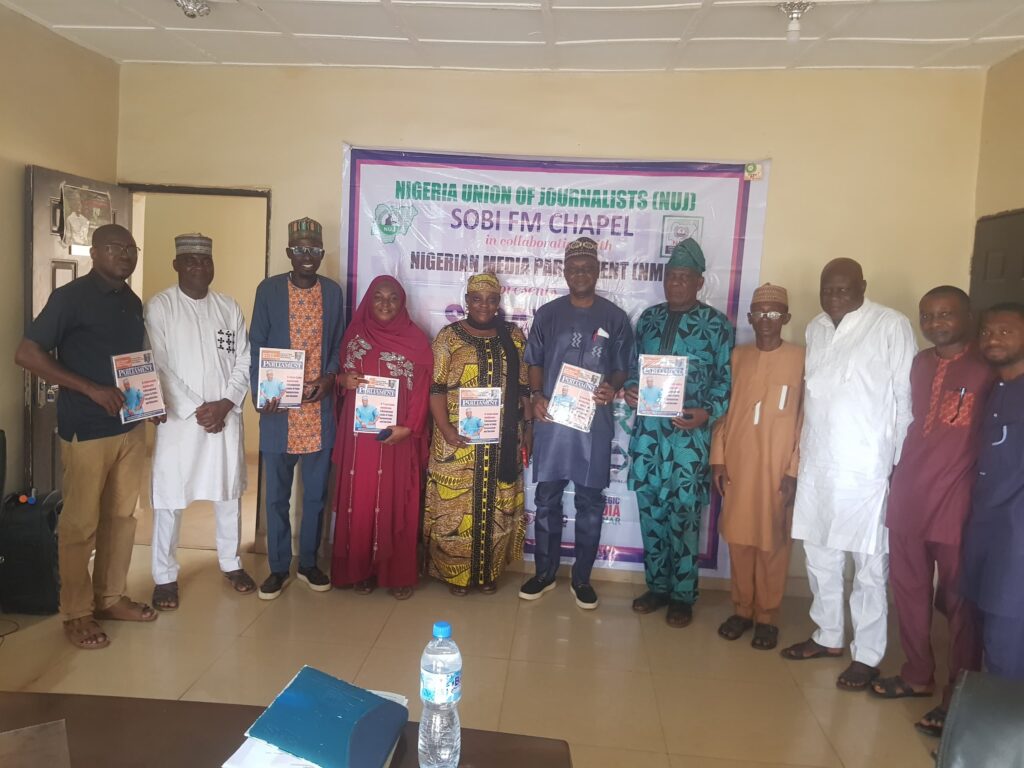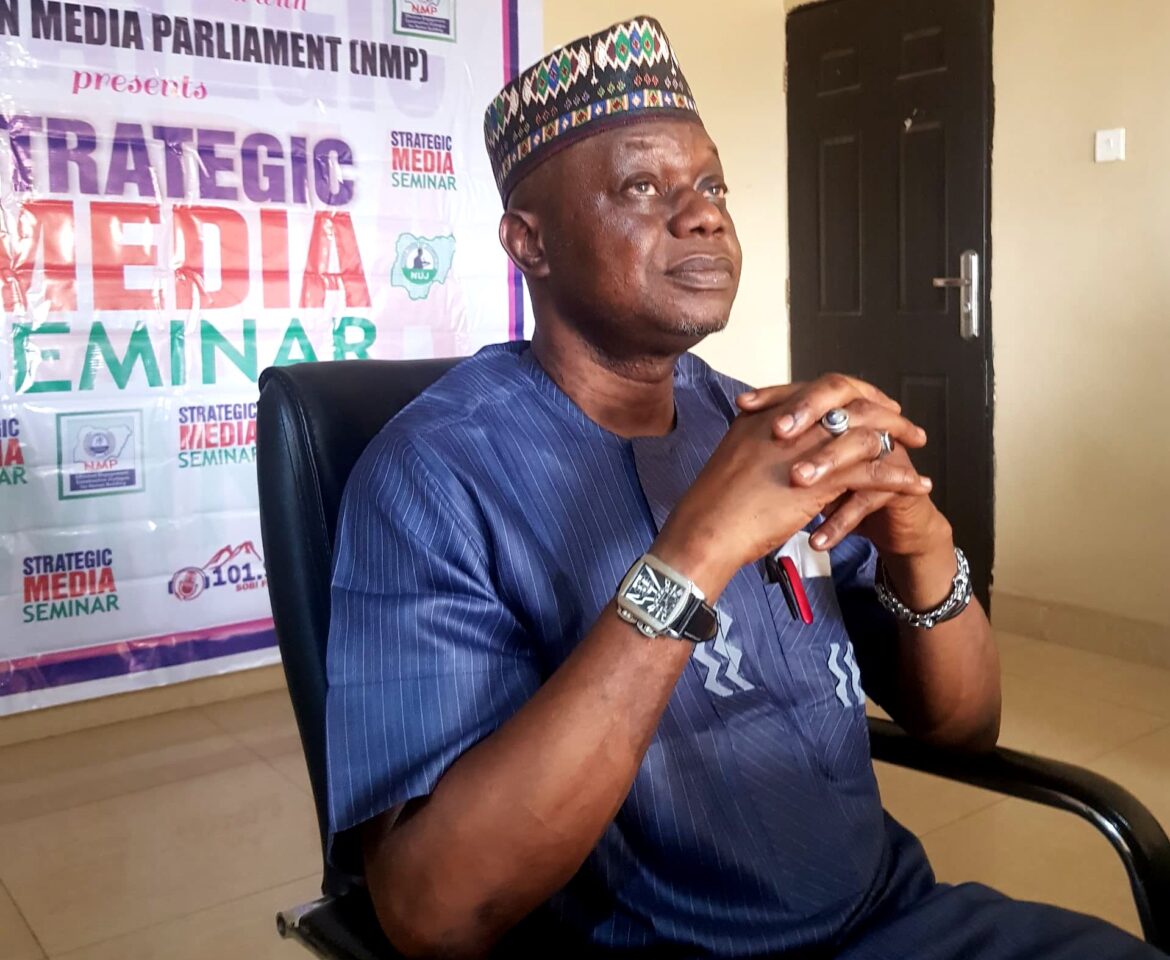A responsive Nigerian media that prioritizes critical issues in support of good governance has been identified as a key driver of socio-political development in the country.
The Registrar of the College of Education, Oro, Kwara State, Dr. Abdulkareem Amuda-Kannike, made this assertion while speaking at the 4th Strategic Media Seminar organized by the Nigeria Union of Journalists (NUJ), Sobi FM Chapel, in collaboration with the Nigeria Media Parliament (NMP).
The seminar, themed “Nigerian Organised Labour Movement and Nation Building,” explored the role of the media and labour unions in shaping national development.
Dr. Amuda-Kannike expressed concern over the declining standards in the journalism profession, criticizing the NUJ for becoming politicized and straying from its core responsibility of holding the government accountable.
“The journalism profession in Nigeria, especially in Kwara State, is facing serious challenges. The NUJ, as an affiliate of the Nigerian Labour Congress, must reclaim its role as the watchdog of society rather than being a tool for personal interests and division,” he stated.
He urged journalists to uphold professionalism and emphasized the need for the NUJ to refocus on protecting the interests of its members while promoting responsible journalism.
Tracing the history of Nigeria’s labour movement to the colonial era, Dr. Amuda-Kannike highlighted its contributions to economic and political struggles, workers’ rights, social justice, and accountability in governance.

“The labour movement was instrumental in the fight against exploitation, low wages, and poor working conditions under colonial rule. Over the years, it has continued to champion better working conditions, fair wages, and policies that promote national development,” he noted.
He stressed that labour unions play a crucial role in negotiating improved benefits for workers, engaging with employers and the government, and ensuring political stability by advocating for policies that address inequality, poverty, and social welfare.
Dr. Amuda-Kannike called on union leaders to tackle pressing issues such as unemployment and underemployment, low wages and poor working conditions, limited collective bargaining power, corruption, job insecurity, political instability, and government interference in labour affairs.
He emphasized that for Nigeria’s organised labour movement to reach its full potential, it must combat opportunism, sycophancy, corruption, and labour godfatherism within unions and their affiliates.
“The labour movement has the potential to drive national development, but only through unity, accountability, and a genuine commitment to workers’ welfare can it achieve meaningful progress,” he asserted.
Dr. Amuda-Kannike, however, commended the leadership of NUJ Sobi FM Chapel and the Nigeria Media Parliament for creating a platform to discuss these critical issues. He urged other NUJ chapels to organize similar forums.
He stressed that such discussions are essential to revitalizing the media profession and ensuring that journalism remains a powerful force for national development.
“The media must reclaim its position as the Fourth Estate of the Realm, championing the common good, promoting accountability, and fostering democratic governance,” he added.
